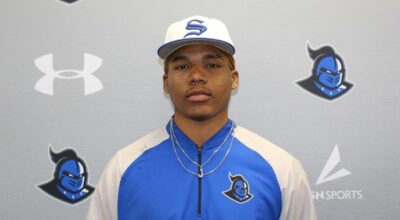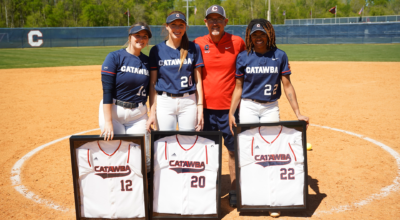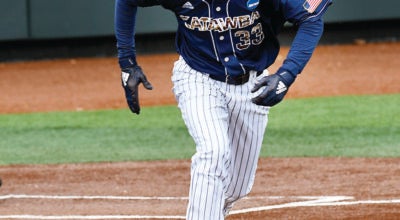College basketball: NCAA slams Syracuse, Boeheim
Published 1:23 am Saturday, March 7, 2015
The Associated Press
SYRACUSE, N.Y. (AP) — The NCAA denounced one of the country’s most decorated basketball programs Friday, suspending Syracuse coach Jim Boeheim for nine conference games next year and outlining a decade-long series of violations that included academic misconduct, improper benefits, and drug-policy failures.
The governing body, saying the school lost control of its athletic department, placed Syracuse on probation for five years for breaking with the “most fundamental core values of the NCAA.”
The bulk of the violations concerned athletic department officials interfering with academics and making sure star players stayed eligible.
The basketball team must vacate wins in which ineligible players participated. Those players competed during five seasons: 2004-2007 and 2010-2012.
“The behavior in this case, which placed the desire to achieve success on the basketball court over academic integrity, demonstrated clearly misplaced institutional priorities,” the NCAA said.
Boeheim, the second-winningest coach in Division I history with 966 victories, has coached at Syracuse for 39 years, having played at the school as well. The 70-year-old coach has been an assistant on the last two U.S. Olympic champion teams.
The punishment includes financial penalties and the reduction of three men’s basketball scholarships a year for four years. Recruiting restrictions will be enforced for two years. Boeheim’s suspension will sideline him for half of the Atlantic Coast Conference next season.
The four-year investigation also revealed violations by the football program and women’s basketball, although most were in men’s basketball.
In anticipation of the report, Syracuse chancellor Kent Syverud had announced a postseason ban for this year for the men’s basketball team. The NCAA accepted the ban and indicated the school could delay the loss of scholarships for one year. Boeheim has a stellar class coming next fall, rated the best in his long tenure.
Syverud said the school does not agree with certain aspects of the ruling and is considering a possible challenge. Syverud said Boeheim may choose to appeal the part of the decision that affects him personally.
Boeheim was en route with the team to North Carolina and could not be immediately reached for comment. The exact number of victories Boeheim will lose has not yet been determined, according to Syracuse University spokesman Kevin Quinn.
The NCAA said Boeheim did not promote an atmosphere of compliance and failed to monitor the activities of those who reported to him regarding academics and boosters.
The NCAA said several violations involved students and staff. The report said the former director of basketball operations, whose job primarily consisted of monitoring academic performance of basketball student-athletes, became overly involved. He collected and maintained student-athletes’ usernames and passwords and provided them to others, including student-athlete support services.
In its decision, the committee specifically addressed academic integrity.
“Improper institutional involvement and influence in a student’s academic work in order to gain or maintain eligibility is a violation of NCAA rules and a violation of the most fundamental core values of the NCAA and higher education,” the committee wrote.
The committee also found that from 2001-09 the school did not follow its own written policies and procedures for students who tested positive for banned substances.
In addition to the one-year postseason ban for the men’s basketball team, the university announced it also had self-imposed other penalties, including elimination of one scholarship for men’s basketball for the 2015-2016 season, vacating 24 men’s basketball wins (15 in 2004-05 and nine in 2011-12) and 11 football wins from 2004-07 under former coaches Paul Pasqualoni and Greg Robinson.
The school must return to the NCAA all funds it has received through the former Big East Conference revenue sharing for its appearances in the 2011, 2012 and 2013 NCAA men’s basketball tournament.
The 94-page NCAA report said a booster developed relationships with men’s basketball and football players and members of the men’s basketball staff. In some instances, the report said the basketball staff encouraged students to develop relationships with the booster, which resulted in rule violations.
The investigation also found that the booster provided more than $8,000 in cash to three football and two men’s basketball students for volunteering at a local YMCA. Additionally, the booster gave money to basketball staff members for appearances or assistance at YMCA events, and those payments were not reported to the school as outside income or supplemental pay, as NCAA rules require.





